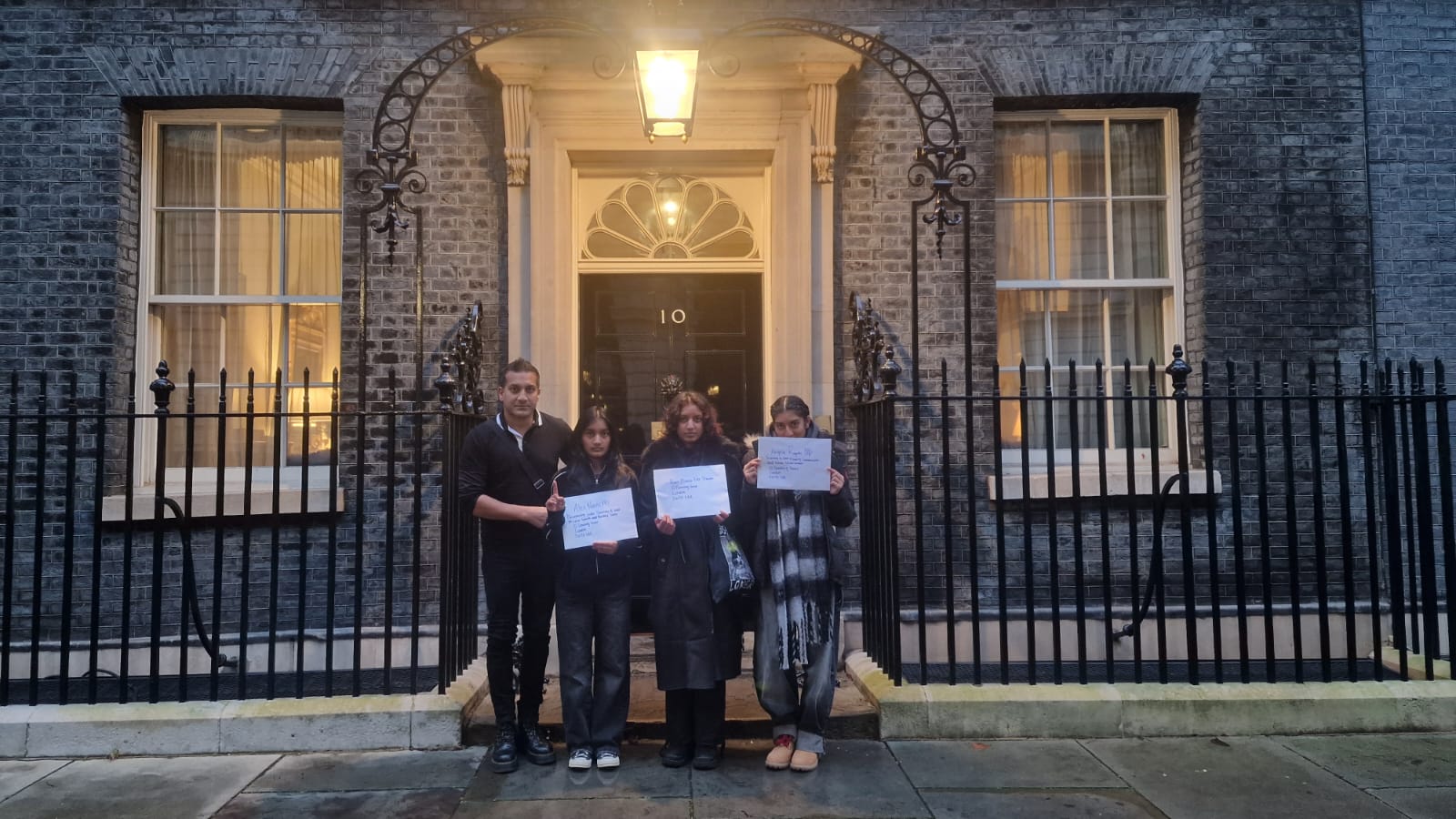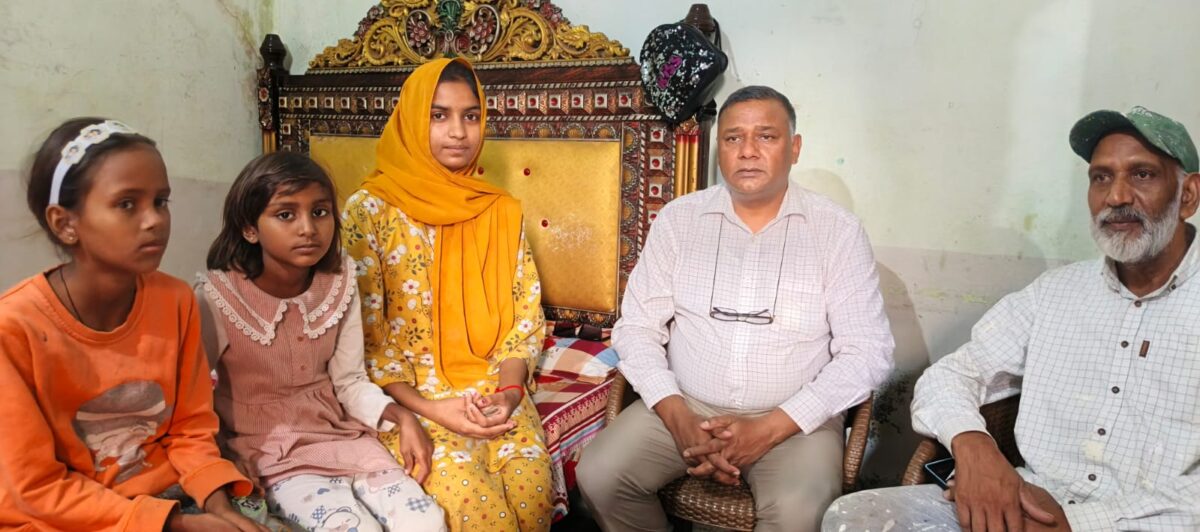Pakistan: On 26th June 2024, 22-year-old Basharat Masih, a Christian waiter from Faisalabad, was arrested under Pakistan’s blasphemy laws whi
UK: The Citizen Participation and Public Petitions Committee recently received official responses to petition PE2113/M: Provide support to RAAC-affected communities, which I submitted on behalf of RAAC homeowners. The letters—dated 29 and 30 October 2025—come from the Secretary of State for Scotland, Douglas Alexander MP, and the Cabinet Secretary for Housing, Màiri McAllan MSP. They acknowledge the severity of the RAAC crisis but reveal an ongoing stalemate over responsibility and action.
Both responses highlight the political and bureaucratic challenges facing affected homeowners, yet neither government offers a comprehensive solution to the thousands of families now living with homes that are unsafe, unsellable, and in many cases, uninhabitable.
A familiar story of political deflection
Douglas Alexander’s response offers sympathy but little substance. While he “recognises the frustration” caused by RAAC, he quickly points to devolution, stating that the issue “is a devolved matter for the Scottish Government.” He adds that Scotland “received a record funding settlement” which “could be used to tackle this problem.”
This framing conveniently ignores that the origins of RAAC usage and the Right to Buy sales that followed were part of UK-wide policies prior to devolution. Many affected homes were built under national building standards and sold under UK legislation, meaning this crisis is not solely a Scottish responsibility.
The Secretary of State’s letter ends with a polite request to be “kept updated,” but fails to commit to any form of joint approach or intervention. For affected homeowners, this reinforces the perception that Westminster continues to sidestep responsibility for a crisis rooted in national policy and construction standards.
RAAC in Scotland – a uniquely concentrated problem
While both governments frame RAAC as a UK-wide issue, the available evidence suggests that the crisis is overwhelmingly concentrated in Scotland. So far:
Wales: Only 49 homes affected, including 17 private homeowners.
England (Basildon): Only 17 homes affected, with 2 private homeowners.
Ireland: No reported RAAC-affected homes.
By contrast, over 1,000 private homes in Scotland have already been declared RAAC-affected.
This stark discrepancy shows that, although UK-wide coordination could be useful for reserved matters like tax and insurance, the primary burden of the RAAC problem rests on Scottish homeowners. The Scottish Government cannot rely on the UK to take the lead—it must act decisively on its own.
The Scottish Government’s position and partial interventions
In her response, Màiri McAllan outlines a far more comprehensive understanding of the situation. She confirms that both she and her predecessor have repeatedly written to the UK Government, calling for a UK-wide RAAC remediation fund. She argues that cross-UK coordination is needed because RAAC homes exist across all four nations and issues like insurance and tax remain reserved.
Importantly, McAllan has also provided financial flexibility through the Affordable Homes Fund, enabling Aberdeen City Council to offer affected homeowners fixed payments close to pre-RAAC property values. This represents one of the first tangible financial interventions supporting homeowners caught in the RAAC crisis, and demonstrates what proactive local measures can achieve when funding flexibility is provided.
However, this is not a panacea. The intervention is limited in scope and geography, leaving homeowners in other affected areas—such as Clackmannanshire, West Lothian, and Fife—without comparable financial support. Many residents remain trapped in unsafe homes with no realistic prospect of compensation or remediation. The solution remains piecemeal, uneven, and dependent on where a homeowner lives.
Local engagement – promises versus reality
McAllan’s letter discusses her RAAC in Housing Leadership Group, tasked with gathering updates on council engagement with residents. While she reports a “broad range of actions” — including meetings, drop-ins, emails, and web updates — engagement varies dramatically across councils and housing providers.
Homeowners report a postcode lottery:
Some councils maintain regular contact and have appointed liaison officers.
Others have failed to hold meetings for months.
Owners in entirely private blocks often receive no direct support, being merely directed to IStructE guidance.
Housing Associations (Registered Social Landlords) often perform even worse in terms of communication. They typically lack the same funding flexibility available to councils, meaning they cannot offer financial solutions or buyouts to affected homeowners. Residents in blocks managed by RSLs therefore face both poor engagement and no access to financial remedies, compounding the distress caused by RAAC.
Beyond frequency and method of engagement, there is a wider issue of public participation standards. Councils differ in how they allow residents to participate in governance processes such as questions, deputations, and petitions. In Clackmannanshire, for example, it has been impossible to engage meaningfully in public meetings: residents are not permitted to ask questions or present deputations, and the council operates a rigid petition policy that restricts access and scrutiny.
To address this gap, I have submitted a new petition on standards for public participation processes via the Scottish Parliament’s Petition Committee portal. This petition calls for consistent, transparent, and accessible mechanisms across all councils so that residents — particularly those affected by urgent housing issues like RAAC — can hold decision-makers accountable and contribute meaningfully to public debate.
Despite official assurances of engagement, the lack of consistent public participation standards and unequal funding access means that many residents remain excluded from decisions directly affecting their homes and safety, worsening the hardship caused by RAAC.
What needs to happen next
To break this deadlock, several urgent steps must be taken:
Immediate establishment of a joint UK-Scottish task force involving affected homeowners, local authorities, and independent engineers.
Creation of a cross-UK RAAC remediation and compensation fund, mirroring the post-Grenfell model.
Expansion of funding flexibility, like that used in Aberdeen, to ensure all affected councils can deliver fair compensation and buyout offers.
Mandatory national communication standards for councils and housing associations.
Publication of full RAAC data across all UK nations, including England and Wales.
Legislative protections for homeowners unable to sell or insure properties due to RAAC until remediation is completed.
Conclusion
The letters from Douglas Alexander and Màiri McAllan confirm one thing: political acknowledgment without political action achieves nothing.
While McAllan’s support for Aberdeen City Council is a welcome start, it remains a patchwork measure, failing to address the nationwide, concentrated impact of RAAC in Scotland. Both governments must stop passing the buck and begin working together to deliver safety, fairness, and justice for every RAAC-affected household.
The RAAC crisis is a national failure with local consequences — and until our leaders act decisively, homeowners will continue to bear the unbearable cost of governmental inaction.
Wilson Chowdhry, stated: "In her response, Màiri McAllan notes that she has been in direct communication with Steve Reed MP, the UK Secretary of State for Housing, Communities and Local Government, regarding the need for a UK-wide RAAC remediation fund. While she has offered to work collaboratively with the UK Government, formal progress has been limited. I will also be writing directly to Steve Reed on behalf of the UK RAAC Campaign Group (UKRCG) to press for urgent financial support and coordinated action, ensuring that the voices and concerns of affected homeowners are clearly represented at a national level."
You May Also Like
Sialkot: After the brutal murder of Christian painter Yousaf Masih in Sialkot, his three orphaned daughters were left heartbroken and destitute.&nb
Sindh, Pakistan: In the remote village of Jarawater, Sindh, Christian and Hindu families struggle daily without access to clean drinking water or s

On demand of our readers, I have decided to release E-Book version of "Trial of Pakistani Christian Nation" on website of PCP which can also be viewed on website of Pakistan Christian Congress www.pakistanchristiancongress.org . You can read chapter wise by clicking tab on left handside of PDF format of E-Book.








